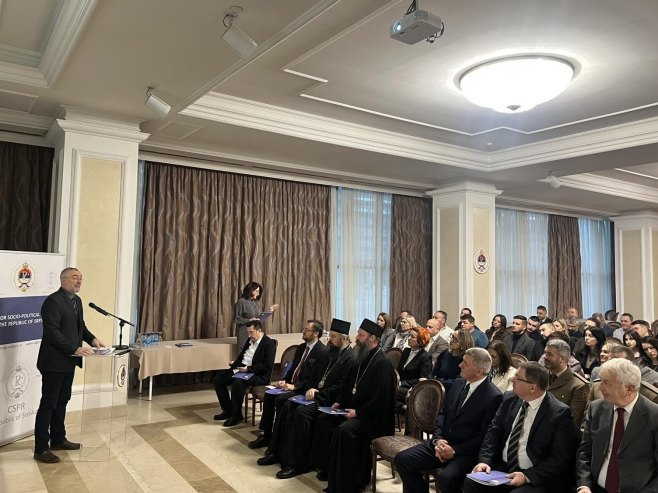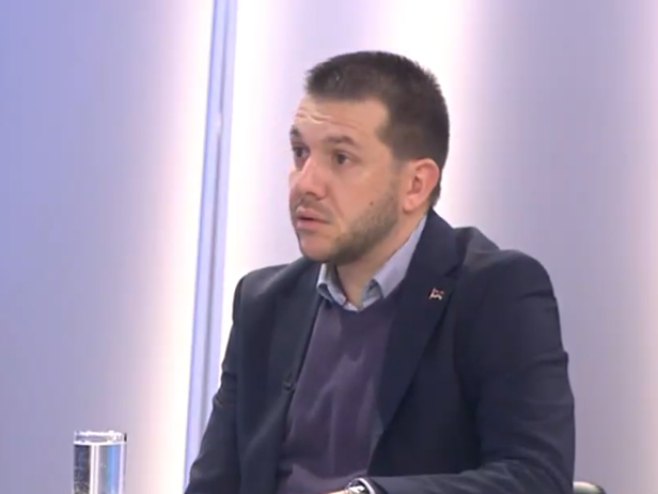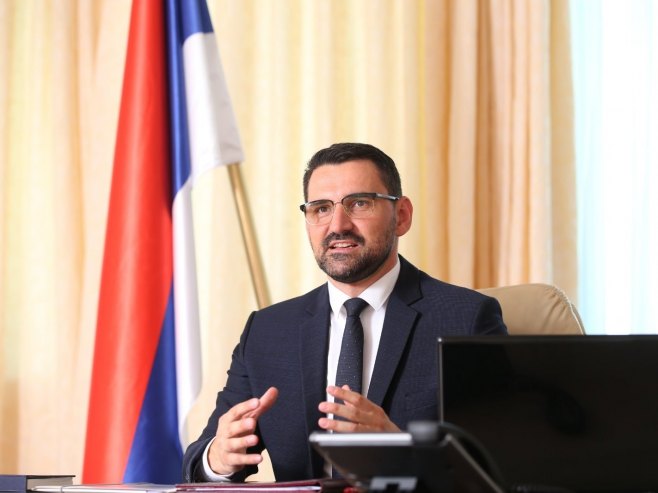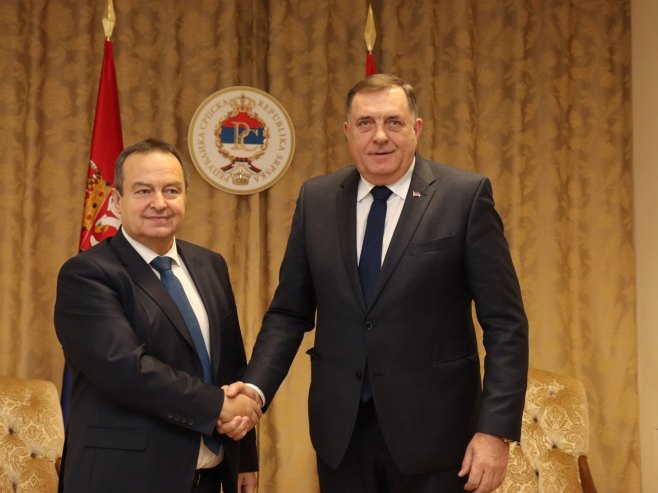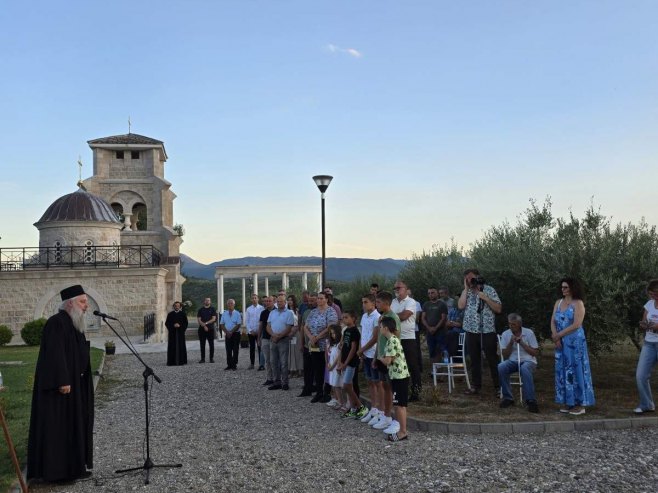Bosnia and Herzegovina, as it is currently organized, does not function. The system of government is tangled and ineffective, and the claim of democracy is meaningless when the people are ruled by a modern colonial overseer, wrote former Illinois governor Rod Blagojevich in an op-ed for The Washington Post. He added that the country is not governed by the will of its people, but by a foreign high representative who has the authority to unilaterally disqualify democratically elected leaders.
The op-ed, published in The Washington Post, reads in full:
It is time to face an uncomfortable truth: Bosnia and Herzegovina, as currently organized, does not work. The system of governance is tangled and inefficient, and the notion of democracy is rendered meaningless by the fact that the people are ruled by a modern colonial governor. Historic hatreds run deep, and divisions among the peoples remain ever-present. Bosniaks, Croats, and Serbs do not trust one another. How could they? Animosities, sectarian violence, and shifting borders have persisted for centuries.
Last week, Milorad Dodik, leader of the SNSD in Republika Srpska, again called for the creation of a separate Croat entity within Bosnia and Herzegovina. This proposal reflects the fear of openly expressed ambitions by Bosniak Muslim political leaders to establish a centralized Muslim unitary state. Dodik proposed the creation of a “third entity.” He argues that the only way for Bosnia and Herzegovina to become stable is for all three constituent peoples to enjoy genuine self-determination, without any being subordinated to the others.
In that spirit, Dodik proposed dividing the Federation into two parts — Bosniak and Croat. Almost thirty years after the Dayton Peace Agreement, which ended the Bosnian War, the country remains politically dysfunctional, socially divided, and economically stagnant. Although the armed conflict has ended, the framework established at Dayton has failed to transform Bosnia and Herzegovina into a stable and unified state.
In the years that followed, Western politicians began centralizing power and eroding the autonomy of the Serb and Croat Christian minorities. As a result, ethnic divisions are now deeper than ever, while Bosniaks, Croats, and Serbs live in parallel realities. The political system, based on forced cooperation and mutual vetoes, has turned into a permanent deadlock. Moreover, the country is not governed by the will of the people but by a foreign high representative who has the authority to unilaterally disqualify democratically elected leaders.
Such a status quo cannot last. The region is a ticking time bomb. Unless all three peoples are granted the right to self-determination, history teaches us that violence and war will again become inevitable. To move forward, the country needs a new constitutional framework that reflects political and demographic realities. A lasting solution could be the formal establishment of three autonomous entities — one for Bosniaks, one for Croats, and one for Serbs — within a loose confederation.
This would not be a call for division or renewed conflict, but a pragmatic approach to governance, partly inspired by recent international peace initiatives such as the Trump administration’s normalization agreements in the Middle East. The Dayton Agreement stopped the war — its greatest achievement — but it was never intended as a long-term state-building plan.
The current structure includes two entities: the Federation of Bosnia and Herzegovina (mainly Bosniaks and Croats) and Republika Srpska (mainly Serbs). Within this framework, Croats have long claimed to be treated as junior partners, often politically outvoted by the more numerous Bosniaks in the Federation. This has led to repeated calls for the creation of a third, Croat-majority entity — a demand that remains unmet and increasingly urgent.
Reform attempts have failed. The creation of three autonomous entities would acknowledge demographic and political realities on the ground. Each group would enjoy a high degree of self-governance in cultural, educational, and administrative matters, under a minimal but functional central government responsible for foreign affairs, currency, and borders. Such an approach would reduce tensions arising from constant interethnic competition at the state level. Instead of enforcing unity from the top down, it would enable peaceful coexistence from the ground up.
Furthermore, each community would have a vested interest in maintaining peace within its own area, with less fear of domination by others. This would address Croat and Serb grievances and help stabilize the Federation, which has become dysfunctional precisely because it attempts to govern three peoples with different political priorities.
Republika Srpska, meanwhile, already enjoys significant autonomy, but its sovereignty is constantly undermined by the German high representative, who conducts lawfare — a form of legal-political warfare aimed at suppressing the will of the Serb people.
The challenge lies in achieving genuine autonomy, fairly and evenly distributed. The proposal for three entities in Bosnia and Herzegovina recalls the approach of the Abraham Accords (2020) and other initiatives led by the Trump administration in the Middle East. Those agreements did not seek to erase differences or resolve every historical injustice, but to establish practical arrangements that enable coexistence and cooperation on shared interests — particularly in trade, security, and development. Trump’s peace strategy in the Middle East was grounded in realism, not ideology.
For decades, the international community tried to resolve the Israeli–Palestinian conflict through an “all or nothing” approach — often failing because it insisted on a complete solution before any normalization. Similarly, in Bosnia and Herzegovina, waiting for “perfect unity” or “complete reconciliation” before reforming the political system is unrealistic and counterproductive. The longer the country remains paralyzed by its dysfunctional structure, the more resentment will grow. As in the Middle East, an agreement that recognizes current realities — even if imperfect — could open the door to lasting peace and cooperation.
To be clear, the three-entity model is not without risks. Protection of minorities within each entity would be essential. A strong constitutional court and a robust human rights framework would be required to prevent discrimination and ensure freedom of movement and expression for all citizens, regardless of ethnicity.
In addition, the Office of the High Representative should be abolished. International actors — especially the United States, together with the European Union, Russia, and Hungary, which all enjoy considerable trust in the region — could play a constructive role. Their goal should not be to impose a solution, but to facilitate a peaceful and democratic process in which all three peoples have a genuine voice.
A clear path toward European Union membership could serve as a strong incentive for achieving consensus.
Bosnia and Herzegovina cannot afford another decade of political limbo. Pretending that ethnic divisions will fade over time or under pressure is pure illusion. Like Trump’s peace accords in the Middle East, a new approach to Bosnia and Herzegovina must be based on pragmatic coexistence, not utopian unity. By formalizing a three-entity structure within a minimal federal framework, the country could finally build a political system that reflects its complex identity rather than fighting against it.
Stability and prosperity can only be built when people feel heard, represented, and secure. That is the essence of peace — and Bosnia and Herzegovina has long deserved it.
Source: Atv

